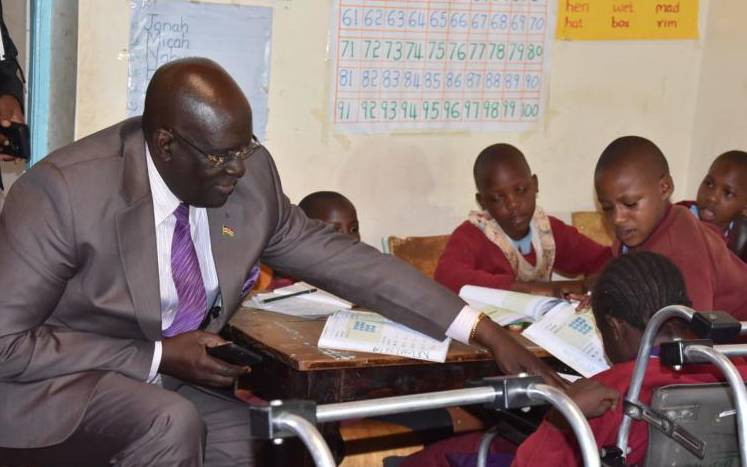×
The Standard e-Paper
Smart Minds Choose Us

The government has assured parents and learners over the ongoing Grade Three assessments saying they are not national tests to determine the transition to the next class.
Education Cabinet Secretary George Magoha said the Kenya Early Years Assessment (Keya) will only be used to inform learning achievements attained by learners at Grade Three under the Competency-Based Curriculum (CBC).